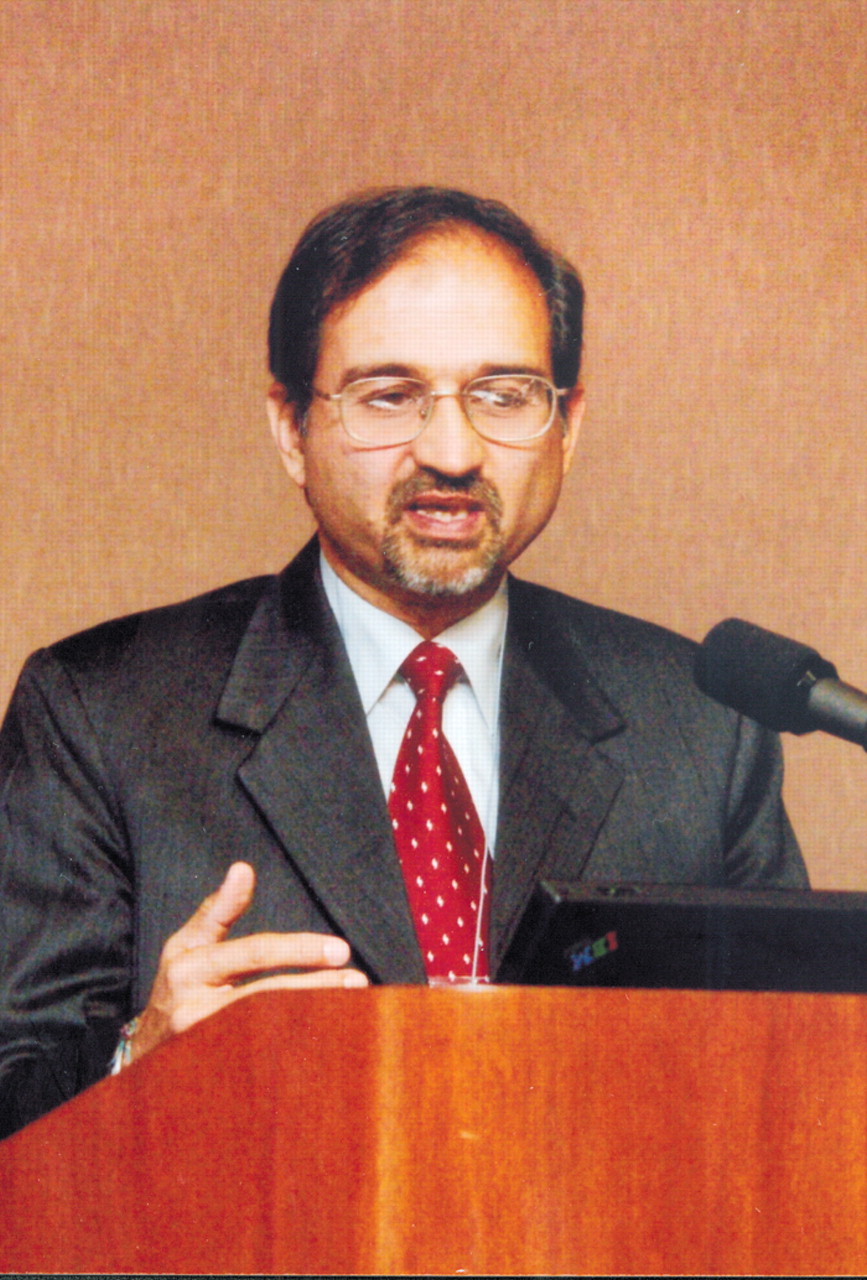Good Intentions Often Miss Disaster Relief Targets

Shekhar Saxena, M.D.: Building sustainable mental health capacity before a disaster hits may be less dramatic but more effective. Ellen Dallager
The India Ocean tsunami last December provided a tragic but much-needed reminder that meeting the mental health needs of disaster victims takes more than sending in planeloads of psychiatrists and mental health professionals to debrief the victims.
“Foreigners came to help, but they didn't know the languages,” said Shekhar Saxena, M.D., coordinator of mental health evidence and research at the World Health Organization (WHO) in Geneva, speaking at a special symposium during the APA annual meeting in Atlanta in May. Those language barriers seriously limited the care the volunteers could provide, he said.
While WHO had published several reports on dealing with the mental health outcomes of natural or man-made disasters, the tsunami only reinforced Saxena's view that the short-term visits by foreign personnel so beloved by the TV cameras don't do much good.
Saxena acknowledged the good intentions of Western medical groups and individuals but suggested a number of ways they can help in emergencies aside from their direct presence at the scene.
When disaster strikes, he said in an interview with Psychiatric News, they should assist and support members of their profession who are based within the disaster area. To overcome language barriers, they can also identify fellow professionals who come from affected countries and cultures but who are currently based in the West and financially support their longer visits—several months or more—to the disaster area for training or service. Professional groups can also provide material, medicines, and equipment at the request of local societies and with local government approval.
Longer-term, less-glamorous efforts undertaken long before disaster strikes are more likely to help large numbers of people when the terrible day arrives.
After the tsunami struck, Saxena spent much time in Sri Lanka, a country with just 35 psychiatrists, he said. To fill the immediate need and provide a quick response to survivors, WHO gave social service training to local authorities such as teachers, police, and postal workers.
WHO urged Sri Lanka, India, Indonesia, and other countries affected to give more thought-out responses to offers of aid, which poured in last December.
“Not just `yes,' but also `yes, but'; `not now'; or `what about this kind of help instead of that one?'” are examples of such responses, Saxena said.
Local Preparation Is Key
Building sustainable mental health capacity before disaster hits may be less dramatic but more effective, he said. The early preparation should include training local medical personnel in “basic, general mental health care and psychological first aid,” then drawing up plans for a mental health response to future disasters.
“At times of crisis, don't think only about professionals,” said Srinivasi Murthy, M.D., also of WHO, at the Atlanta meeting.“ Interventions should focus on increasing individual resiliency, improving community cohesion, and integrating mental health care with schools and other institutions.”
Feelings of distress and psychiatric disorders both rise after a disaster, then decline, although not to baseline levels, he said. Nevertheless, the immediate needs are largely practical.
“A fisherman needs a new net, not more mental health services,” said Frank Njenga, M.D., of Kenya, a former president of the African Psychiatric Society.
Traditional Interventions Often Fail
Many in the developing world see the posttraumatic stress disorder (PTSD) model as a Western phenomenon, one not widely applicable elsewhere.
The interventions often employed to reduce traumatic stress, like one-time psychological debriefings or benzodiazepine medications, show little evidence of effectiveness, and using them indiscriminately can even be harmful, wrote Saxena and two WHO colleagues, Mark van Ommeren, Ph.D., and Benedetto Saraceno, M.D., in the January Bulletin of the World Health Organization.
Immediately following an event, people need a flow of accurate information and a return to normal activities and community participation, said the WHO team. Facts about the emergency, relief efforts or organizations, and help in locating families can reduce public anxiety and distress. Restarting schooling and recreational activities can recreate a semblance of normal life for children. Cultural and religious practices, including funerals and mourning rituals, should be encouraged, as should recruiting adults and adolescents for communal activities such as reconstruction efforts.
“We must look beyond our ethnocentric bias and consider not just PTSD, but PTG—posttraumatic growth,” added Lennart Levi, M.D., Ph.D., former director of the Division of Stress Research at the Karolinska Institute in Stockholm, Sweden.
Most persons with urgent psychiatric problems will have pre-existing disorders such as psychoses or severe depression, said van Ommeren, Saxena, and Saraceno. Those patients should be managed with appropriate medications.
More common acute-stress problems occasioned by the disaster can be treated with psychological first aid: caring for basic needs, protecting survivors from further harm, offering nonintrusive emotional support, and organizing social supports. “Teach the population that their emotional reactions to disaster are normal and tailor responses to local situations,” said Murthy.
The WHO report discourages blanket use of isolated psychological debriefing sessions that push people to share their experiences beyond their personal or cultural inclinations. Instead, in the postemergency phase, mental health services, including trauma-related care, should be integrated into the general health care system. Many well-meaning foreign health personnel leave too early, said several speakers.
“At present, nongovernmental organizations fuelled by donor enthusiasm rush in to debrief trauma survivors in the early phase when such interventions are not needed and commonly leave just at the point when the more chronic cases emerge,” wrote Derrick Silove, M.D., a professor of psychiatry at the University of New South Wales, Australia, in an accompanying commentary in the WHO Bulletin.
Long-term solutions are the answer, Saxena said at the Atlanta meeting.“ We must empower communities. At the moment, there is too little money for sustainable action.”
The WHO report, “Mental and Social Health During and After Acute Emergencies: Emerging Consensus?,” is posted online at<www.who.int/entity/bulletin/volumes/83/1/71.pdf>.▪



